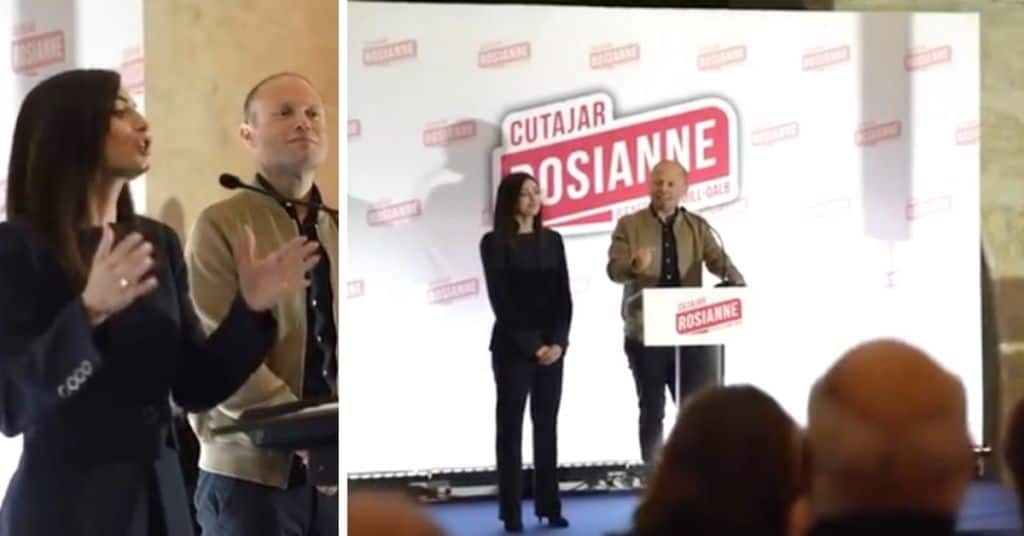
Montage: Lovin Malta
‘What changed?’ she asked rhetorically as she hurled herself on the pyre.
Rosianne Cutajar pretended to believe the bullshit of Robert Abela when he presented her as a fully legitimate candidate for the 2022 general elections. At the time Robert Abela had said Rosianne Cutajar had expiated her sins, exposed for an inappropriate and corrupt relationship with Yorgen Fenech she had resigned her role as junior minister. That first resignation was sufficient punishment – political price, is the euphemism they use when they get caught acting unlawfully, a privilege they claim in lieu of the criminal consequences everyone else would face in identical circumstances.
Before the 2022 general election Repubblika had posited the argument that the Labour Party should have dropped candidates who had served under Joseph Muscat and who were party to the collective responsibility for the killing of Daphne Caruana Galizia that had been determined by a public inquiry before that election.
We had borrowed the term used in Italian politics to speak of parliamentarians caught in the Tangentopoli scandal. They were ‘impresentabili’, unsuitable to be offered to the voting public as potential candidates endorsed by a political party that expects to be considered part of the democratic process.
Certainly, voters are responsible for the choices they make and if they want to ‘forgive’ the sins of a politician exposed for corruption, democracy says they are free to do so. But we’re all realistic about the limitations of the ballot and we have rules and customs to govern it. Political parties are such customs. They exist to mediate with and against the free expression of voters by providing parameters, broad definitions of the expressed choice. If we didn’t have political parties we’d only be able to vote for people we know personally.
For someone who trusts the Labour Party, Rosianne Cutajar was a trustworthy choice, whatever her errors, eligible to be elected and therefore eligible to the public’s vote.
Look what happened to her voters now. They are represented in Parliament by someone who no longer belongs to the party they trust. She is now ‘independent’. Independent of the Labour Party. Independent of Labour Party voters.
This happens but Rosianne Cutajar makes an important point about her specific situation. Nothing has changed between the day Robert Abela endorsed her candidature and today that he’s organised her dismissal from the Labour Party. You’d think the “revelation” of the chats with Yorgen Fenech is new but what has changed really is the wider awareness of it mostly carried by the prurient curiosity in their love affair.
But sex with bald men is thankfully not illegal and it is not the reason she has been fired before 2022 and after it. What’s unacceptable is her taking Yorgen Fenech’s money and then speaking for him in Parliament (and at the Council of Europe) without declaring her interest. It’s brokering a property swap for her boyfriend and pocketing the fee without declaring her income to the tax man.
We knew all that before 2022. A Commissioner for Standards in Public Life investigated her and found against her. It was after that that Robert Abela said that she was suitable for public office.
Rosianne Cutajar knows all this. She doesn’t need to ask the rhetorical question ‘what changed’ if this is all of the answer.
Her question is more pointed than that. She’s asking what changed since the chats first came out two weeks ago when Robert Abela defended her, undertook to protect her, and denounced the chat leaks as some evil act of “misogyny”. Yes, he called it that.
What happens within two weeks when Robert Abela decides to fire a victim of misogyny? Does he become misogynist himself?
Here’s a lesson Robert Abela might wished he learned when Repubblika told him to ditch Joseph Muscat’s puppets. If he spares the corrupt the judicial price, he’ll have to carry the political tab.
There’s so much more to come.